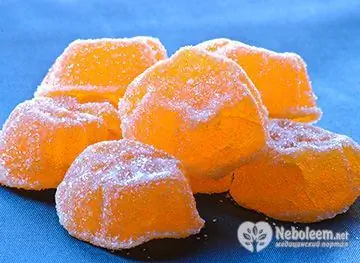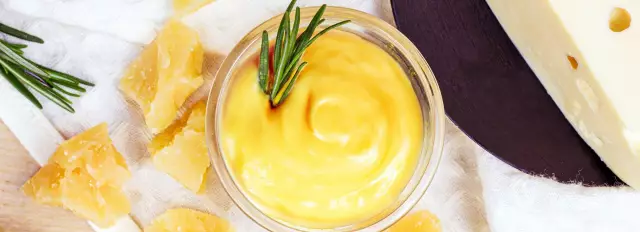- Author Rachel Wainwright wainwright@abchealthonline.com.
- Public 2023-12-15 07:39.
- Last modified 2025-11-02 20:14.
Badian
Star anise (Illicium) - evergreen trees and shrubs of the genus Schisandra, seeds and oils of which are used in cooking and alternative medicine. The plant grows in China, Cambodia, Vietnam, North America and Abkhazia. In nature, there are 32 types of star anise, the most common are true star anise, star anise, anise star anise and lanceolate star anise.
The ratio of BJU in the product

Source: depositphotos.com How to burn 337 kcal?
| Walking | 84 minutes |
| Jogging | 37 minutes |
| Swimming | 28 minutes |
| A bike | 48 minutes |
| Aerobics | 67 minutes |
| Household chores | 112 minutes |
Application of star anise
In alternative medicine, star anise stars are used in the treatment of respiratory tract infections, bronchitis, swine and bird flu, to increase sexual desire (libido) and treat the symptoms of male menopause. Inhalation using star anise stars is effective in treating throat ailments.
Also, star anise stars are used in the treatment of the digestive tract, including upset stomach and colic in infants.
Badian is used for:
- Cough;
- Meteorism;
- Loss of appetite;
- Violation of the menstrual cycle;
- Inflammation of the lungs;
- Upset stomach.
In cooking, star anise stars are used as a spice, and seeds and oils are used as a seasoning.
Star anise stars are composed of a variety of aromatic seeds that are widely used in Asian cooking, and especially in Chinese. Chinese star anise has a sweet taste reminiscent of licorice root and is often added to balance the flavor in desserts, roasts, and salty dishes.
In France, star anise stars are used to flavor alcoholic beverages such as pastis. They are also used in the production of sambuca and absinthe. Star anise is added as a seasoning to dishes made from meat, eggs and poultry. It is used as a spice in tea, Biryani rice and Garam Masaly throughout the Indian subcontinent. Star anise is the main ingredient in the Vietnamese Fo-Bo noodle and beef soup.
Star anise stars are used in traditional Chinese medicine to make medicinal tea as a remedy for rheumatism, and star anise seeds are taken orally after meals to improve digestion.
Japanese star anise is not edible and is not used for medicinal purposes, since it has a highly toxic composition. The use of this type of star anise causes severe inflammation of the kidneys, urinary tract and digestive organs.
In the manufacturing industry, star anise oil is used as a fragrance for the production of soaps, cosmetics, perfumes, and toothpaste.
Star anise is grown commercially in China, India and most other Asian countries.

Useful properties of star anise
Star anise is a good source of shikimic acid, which is effective in the treatment of influenza and is used in the production of the drug Oseltamivir.
Also, the beneficial properties of star anise include the ingredients contained in its seeds, which are active against bacteria, yeast and fungi.
Contraindications
The use of star anise as a medicine has a number of contraindications, such as:
- Pregnancy and lactation;
- Mammary cancer;
- Uterine cancer;
- Ovarian cancer;
- Myoma of the uterus.
Also, star anise stars are not safe for children under the age of one year. It is too difficult to make sure that you have purchased pure Chinese star anise without admixture of poisonous Japanese star anise, because such a check can only be carried out under laboratory conditions. Chinese star anise did not cause side effects in infants during studies, but with an admixture of Japanese star anise, they appeared in the form of irritability, vomiting and seizures.
YouTube video related to the article:
Found a mistake in the text? Select it and press Ctrl + Enter.






